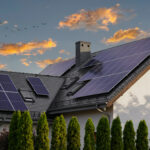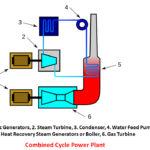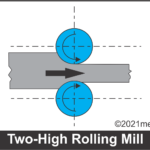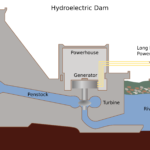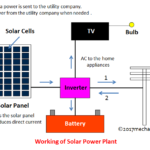Electric power is a basic need in this decade. You will need a source of power each day to make your life amazing. However, mains are not always reliable. Power blackouts are common in many countries due to various incidences.
When a blackout occurs, many things can go amiss. This is where a generator becomes essential. Generators are a good alternative as power backups or when you are operating in a remote area where there are no electric connections. However, they come in different sizes according to the power output they can deliver.
If it’s your first time buying or hiring a generator, you might be confused when the seller asks how many kVA you need. This term can be technical as it is not common in other electrical areas compared with other terms such as watts, volts, and amps. So what is it?
What is a KVA?
KVA stands for kilo-volt-amperes. It is the measure of the generator’s apparent power. It is the total amount of power a system uses. When the system has 100% efficiency, its kVA equals actual power (kilowatts).
However, this is not the case, as no system has 100% efficiency. The kilo volt amperes is the product of volts and Amps in a given electric system such as a power generator. So, high kVA means more power from your generator.
What is the Difference Between kVA and kW?
Many people confuse between kVA and kW. While both are useful measures in determining the size of a power generator, they stand for different aspects. kVA measures the apparent power or the real power of a generator. It is the end capacity of a generator. On the other hand, kW (kilowatt) measures the actual power of a generator or its power output. The kVA will always be high than the kW.
Also, kVA is commonly used across the globe when determining the size of a generator. On the other hand, kW is the popular term in the United States power generator industry. 1kVA is equal to 1,000 volt-amps.
Notably, you can calculate the kW of a generator by multiplying its kVA with the power factor. The power factor is the ratio between the apparent and actual power of the generator.
When a generator is single-phased, it has a power factor of 1. The kVA is equal to kW. A three-phase generator has a 0.8 power factor. So, when you find a 40 KVA generator with a three-phase capacity and want to determine its power rating in kW, you will multiply its actual power by 40 kVA and the Power Factor (0.8) (40×0.8) = 32kW.
Also Read:
- Solar Power Plant – Main Components, Working, Advantages, and Disadvantages
- Nuclear Power Plant – Working Principle, Advantages, Disadvantages with Diagram
- What is Combined Cycle Power Plant? – Complete Explanation
Why is it Important to Know the Size of a Generator You Need?
When buying a generator, its power rating is a crucial element to consider. You need to check a generator’s kW or kVA ratings before determining whether it’s a perfect choice for various reasons:
To Avoid Overload Damages
Overloading your power sources always have regrettable consequences. It will damage your equipment and the generator itself. The issue can arise when you connect equipment and devices requiring more power output than your generator can offer. You can save yourself from this issue by assessing your expected load against the generator’s power output.
Getting Enough Power For Your System
The second reason for checking the kVA rating of a generator is to ensure it has enough power to fire up your system. You need to calculate your power needs by adding up all the watts of the equipment and devices you will be connecting to the generator. This way, you will be sure that the generator you purchase will serve your needs sufficiently.
Which are the Best kVA Ratings I Should Consider for My Property?
As noted, generators’ varying kVA ratings determine their power output and size. Your generator of choice should be the one that fits your needs. Most generators you will find in the market have a kVA rating of between 6kVA and 500kVA.
However, the perfect choice for a residential home can fall between 20kVA and 100kVA. For rental properties, significant events, and construction industries, you will need a power generator that can deliver 500kVA. As such, the kVA rating you will need depends on the power demands of your property or uses.
Wrapping up
As you can see, understanding what kVA is all about is essential when purchasing a generator. The kVA ratings determine the size of a generator you will buy. The higher the ratings, the more powerful your generator will be. So, always consider this power rating unit when purchasing your next generator.


